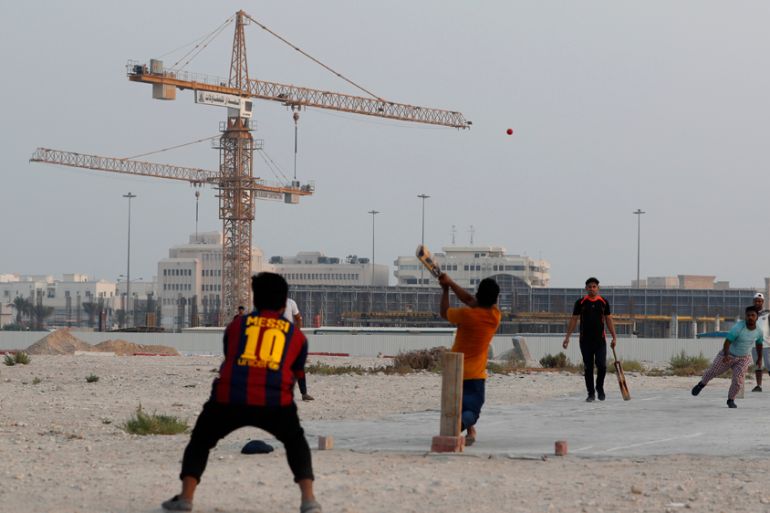Gulf countries urged to prioritise environmental sustainability
Subsidised fuel prices for oil and gas power plants remain a barrier to the implementation of renewable energy projects.

The World Bank has urged countries of the Gulf Cooperation Council (GCC) to prioritise environmental sustainability while diversifying their economies away from a reliance on hydrocarbon revenues in an era of lower energy prices.
The six GCC states – Bahrain, Kuwait, Oman, Qatar, Saudi Arabia and the United Arab Emirates – have, as part of their diversification strategies, largely been developing energy-intensive heavy industry such as the petrochemical sector.
Keep reading
list of 4 itemsQatar emir condemns ‘genocide’ in Gaza, urges ceasefire at GCC summit
‘Enduring commitment’: Key takeaways from US-GCC joint statement
Analysis: Efforts to end Assad isolation gather speed after quake
In a report published on Wednesday, the World Bank recommended the establishment of “effective” environmental management institutions and practices, in addition to scaling up investments in renewables.
“Looking forward, a diversification scenario that does not consider environmental sustainability is no longer a viable option,” said Issam Abousleiman, World Bank regional director for the GCC countries.
Between 2006 and 2018, GCC countries committed about $10.1bn to investments in renewable energy but their combined renewable output totalled just 867 megawatts, less than 1 percent of the 145 gigawatts of installed power capacity at the end of 2018, said the World Bank.
Sluggish growth
Subsidised fuel prices for oil and gas power plants remain a barrier to the implementation of renewable energy projects, it added.
Countries in the Gulf region are dealing with sluggish economic growth this year, with low energy prices and OPEC-led production cuts offsetting improvements in non-oil sectors.
The World Bank expects Saudi Arabia, the largest Arab economy, to grow 0.4 percent this year, below Riyadh’s own forecast of 0.9 percent, while it sees growth in the UAE at 1.8 percent, below the 2.3-percent forecast of the UAE central bank.
Qatar’s economy is expected to grow 0.5 percent this year before accelerating to 1.5 percent in 2020 and 3.2 percent in 2021. It is the only GCC country expected to post a fiscal surplus during the three-year period, said the World Bank.
But it added that Qatar, as well as Kuwait and Oman, should avoid delaying the introduction of a value added tax (VAT) – needed to reduce the fiscal impact of oil price volatility.
Oman, whose economy is particularly vulnerable to oil price swings, said earlier this year its plans to introduce VAT were on track, without providing a date.
Saudi Arabia, the UAE, and Bahrain have introduced VAT over the past two years.